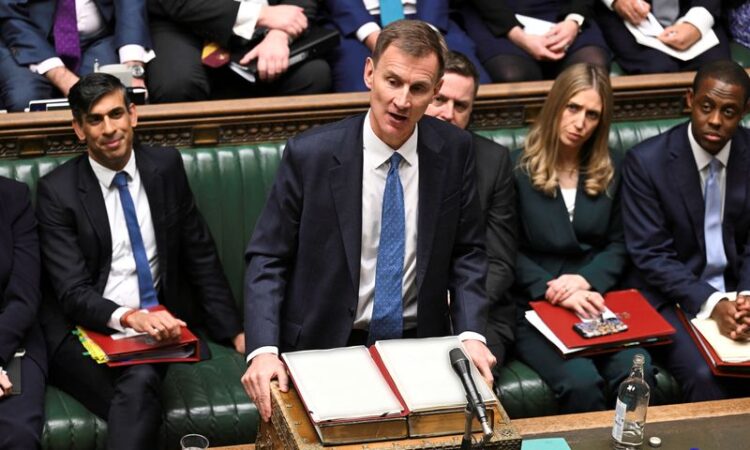
LONDON (Reuters) – British finance minister Jeremy Hunt should not announce further pre-election tax cuts in his budget next week unless he can explain the painful spending cuts needed to pay for them, a leading economic think tank said on Tuesday.
Hunt and Prime Minister Rishi Sunak have said they want to lower Britain’s tax burden – which is on course to hit its highest since World War Two – and many lawmakers in the ruling Conservative Party are demanding action in the March 6 budget with the opposition Labour Party running ahead in opinion polls.
The Institute for Fiscal Studies said Hunt might take advantage of extra wiggle room in the public finances created by higher population estimates that will boost headline economic growth and reduced expectations for future interest rates levels.
Hunt might also repeat what he did in a budget update in November when he announced a cut in social security contributions which he funded by squeezing public spending in the future, at a time when many services, from health and education to social care and housing, are already under strain.
“The Chancellor should resist this temptation. Until the government is willing to provide more detail on its spending plans in a Spending Review, it should refrain from providing detail on tax cuts,” Martin Miklos, an IFS economist, said.
The head of Britain’s fiscal watchdog has sharply criticised the government for providing no detail of how it will achieve the spending cuts outlined by Hunt in November.
The International Monetary Fund (IMF) last month warned against further tax cuts.
Britain’s expected slow economic growth mean possible tax increases or further spending cuts are likely to await whoever wins the next election, analysts have said.
The Conservatives and Labour both say they want to lower debt as a share of economic output in the future, something that looks only just achievable now.
(Writing by William Schomberg; Editing by Suban Abdulla)






